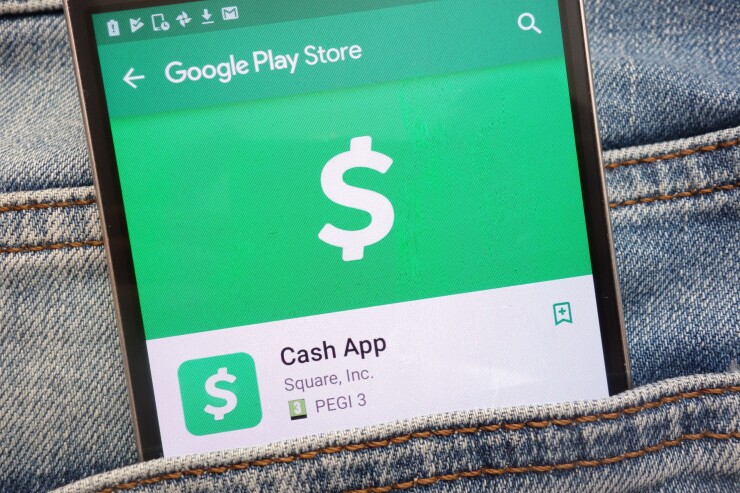A federal magistrate judge has ordered the payments company Block to comply promptly with investigative demands made by the Consumer Financial Protection Bureau as part of a two-year-old probe into fraud involving the company's peer-to-peer Cash App.
The order requires Block to comply with the bureau's information requests by Jan. 5. That deadline is about 29 months after the CFPB first issued a civil investigative demand to the company then known as Square.
Block, led by Jack Dorsey, maintains that it has complied substantially with the CFPB's demands, and that it has kept the agency apprised of its efforts to do so. However, it opposed the CFPB's petition seeking a court order.

"The Court's order is consistent with and reflects Block's intention throughout: We have responded to the CFPB's requests and will continue to do so," a Block spokesperson said Monday in an email. "We remain committed to working cooperatively with the Bureau."
A CFPB spokesman declined to comment on the judge's Nov. 30 ruling,
The CFPB is investigating whether fintech companies have either deprived customers of access to their funds or failed to adequately address their concerns about fraud and errors.
The bureau is also looking into whether the same firms have failed to follow requirements related to unauthorized fund transfers under Regulation E, which implements the Electronic Fund Transfer Act and provides certain protections to consumers who transfer funds electronically.
CFPB Director Rohit Chopra said in September that
"The way in which individuals are defrauded, it's become difficult to crack down," Chopra said at the time.
Late in 2021, the CFPB sent orders to the makers of numerous payment apps — including Apple Pay, Cash App, Google Pay and PayPal's Venmo — to understand what they're doing to protect consumers from fraud, according to Chopra.
As peer-to-peer payments providers have faced growing pressure to offer stronger consumer protections, Zelle, the payments app whose parent company is co-owned by numerous large banks,
But the share of transactions that get disputed is three times higher for PayPal than it is for Zelle, and six times higher for Block's Cash App than it is for Zelle, according to the Bank Policy Institute, a trade group for big banks.
In court filings, CFPB officials have expressed frustration with Block's failure to comply fully with its civil investigative demands, which are sometimes known as civil subpoenas. In August, agency officials wrote that Block had not provided a definitive date by which it expected to turn over all of the requested information.
"The Bureau cannot sit back while its investigation is stymied by Block's slow-walking," the CFPB officials wrote in a request for a court order.
For its part, Block has argued that the CFPB's investigative demands are "overly burdensome" and hard to understand. "Block has consistently worked to engage meaningfully and in good faith with the Bureau about the timing and scope of its productions," lawyers for the company wrote in October.
In her ruling, U.S. Magistrate Judge Sallie Kim wrote that enforcing the demands for information should not create an undue burden, given that Block has already agreed to comply with them.
In securities filings, Block has also disclosed receiving civil investigative demands from multiple state attorneys general seeking information related to its handling of complaints and disputes from Cash App customers.






